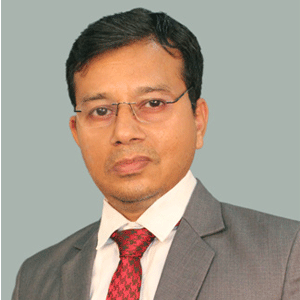
The elevator manufacturing industry is undergoing a transformative shift, propelled by urbanization, technological disruption, geographical diversification, and sustainability imperatives. The vertical ascent of the sector presents opportunities for companies prioritizing AI-driven efficiency, circular economy practices, and emerging markets to take the lead.
However, in the global market valued at $81.91 billion in 2023 and projected to reach $167.62 billion by 2032, navigating regulatory intricacies and cost-related complexities demand integration of innovative models such as Smart Building-as-a-Service(SBaaS)subscriptions 610.
Within this dynamic landscape, Guwahati’s JT Group has carved a distinctive niche, leveraging regional focus and technological agility to address unmet needs. Operating in Guwahati with dedicated manufacturing and service provisions, the firm possesses hyperlocal expertise and focus that positions it as a specialized solutions provider.
Integrating high-quality components while tailoring solutions to local demands, and emphasizing rapid adoption and customizing flexibility, JT Group bridges the prevailing gaps. With comprehensive after-sales solutions leveraging a robust service network across Assam and commitment to digital monitoring, as well as modernization services through its focus on retrofitting older buildings with efficient MRL traction elevators, the company offers one-stop solutions.
Niche Leadership
What differentiates JT Group is its focus on making energy-saving, eco-technology accessible to the cost-sensitive demographics. Targeting mid-range residential and public infrastructure, aligned with India's smart city initiatives, the company is reaching out to an underserved market. Excelling as a regional integrator, the company is filling gaps in service accessibility and offering cost-driven modernization for secondary markets.
But that’s not all, the firm is widely renowned for the superior quality its products offer while being cost-effective. Achieving the precise balance through a multi faceted approach hinged on targeted R&D, supplychain optimization, technological innovation, and sustainability initiatives across diverse business segments offer the JT Group an edge.
Striking the balance with its 4S principle which focuses on consumers, shareholders, employees, and society has pushed the firm to invest strategically in energy efficiency and prioritize long-term savings, sustainable materials, and stringent certifications, demonstrating its commitment to quality, and client satisfaction.
“We employ a comprehensive, multi-layered approach to risk management and safety across the entire lifecycle of its elevator systems-from design and manufacturing to installation and maintenance. This strategy integrates global standards with localized execution. Moreover, we employ a multifaceted strategy to ensure long-term serviceability, accessibility, and ease of maintenance in its elevator systems, which ensures client satisfaction”, shares Jyoti Thakuria, Proprietor, JT Group.
Future Roadmap
A future-driven organization, JT Group’s future roadmap contains plans for extended growth till 2050, focused on sustainability, leadership, and business transformation. The firm aims to achieve carbon neutrality by 2030, and net-zero GHG emissions by 2050. The company further aspires business transformation and portfolio optimization reduced-risk products expansions. For this, it has plans to prioritize heater tobacco, launch a new Ploom device ecosystem, and draw attention to strategic divestments and circular economy.
Technological and operational innovation climate risk resilience is another plan for future enhancement, employing strategies like deployment of TCFD-aligned climate scenario analyses, smart agriculture and manufacturing, and expansion into IoT-driven predictive maintenance. Stakeholder engagement enhancement and regional expansion and partnerships in emerging markets remain other vital expansion aspirations. The firm aims to strengthen hyperlocal service hubs, boost strategic acquisitions and alliances, and collaborate with suppliers in Tanzania/ Zambia on renewable energy.
“Our roadmap merges planet-positive imperatives with profitability drivers, positioning us as a sustainability pioneer in manufacturing. By 2030, we expect dominance in RRP markets, operational resilience, regional expansion, and long-term success which hinges on executing this integrated vision while navigating regulatory headwinds in the tobacco sector”, concludes Jyoti.
We use cookies to ensure you get the best experience on our website. Read more...